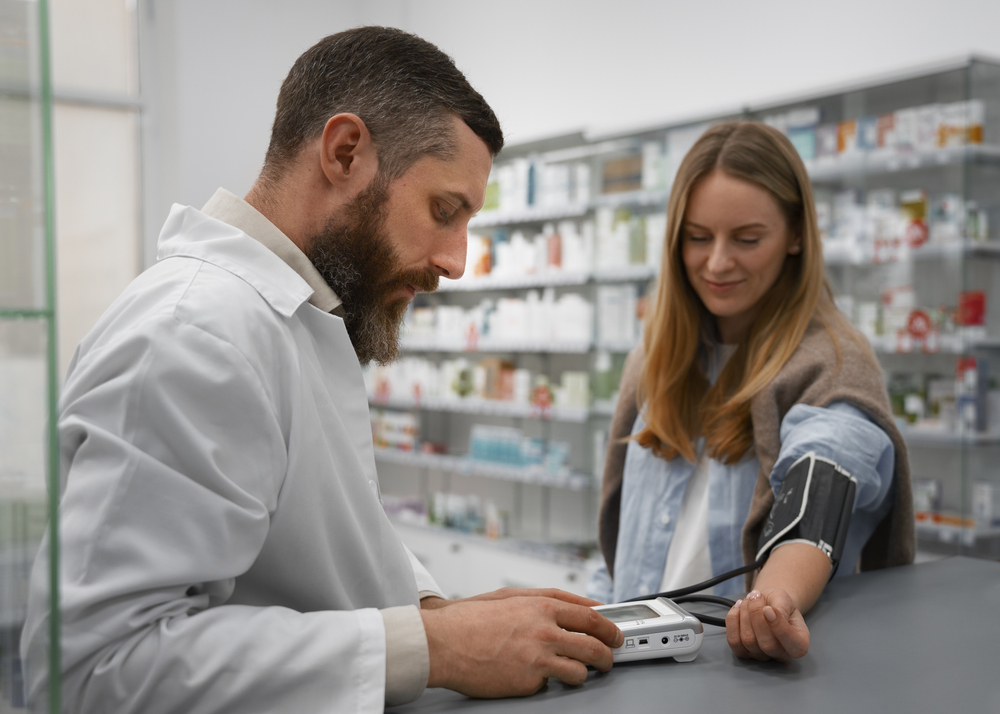What Is Pharmacy First — and Why Does It Matter?
In response to growing pressures on general practice and NHS urgent care services, the Pharmacy First service has emerged as a strategic initiative across England. It empowers community pharmacies to act as the first port of call for managing specific minor ailments, aiming to enhance patient access, relieve pressure on other primary care settings, and utilise the clinical expertise of pharmacists more effectively.
Understanding the Service
Pharmacy First enables community pharmacists to assess and treat a predefined set of conditions through Patient Group Directions (PGDs) — legal protocols that allow treatment without a doctor’s prescription. These commonly include ailments such as sore throat, sinusitis, ear infections, insect bites, impetigo, shingles, and urinary tract infections in women. By empowering pharmacies to manage these conditions, patients can receive timely, clinically appropriate care, often without an appointment.
Why It Matters
- Improved Patient Access
Community pharmacies are widely accessible; many people live within a short distance of a pharmacy and can use extended opening hours to access care. This accessibility improves convenience and reduces delays for patients. - Alleviating Healthcare System Strain
By redirecting minor-ailment consultations from GPs and urgent care, Pharmacy First helps reduce demand on already overstretched services, allowing more focus on complex cases (NHS England, 2023). - Optimising Clinical Skills
Pharmacists are highly trained clinicians. Through Pharmacy First, they can fully leverage their diagnostic and clinical decision-making skills—structuring consultations, considering differential diagnoses, applying red-flag criteria, and making referrals when needed. - Supporting Antimicrobial Stewardship
With clear protocols embedded in PGDs, pharmacists can deliver evidence-based treatments, reduce inappropriate antibiotic use and supporting national antimicrobial resistance goals (Public Health England, 2022). - Delivering Patient-Centred Care
Quick, empathetic consultations in a familiar community setting often lead to high patient satisfaction — especially when patients receive tailored advice and reassurance during walk-in visits.
How It Works in Practice
A patient walks into a pharmacy with sore throat symptoms. The pharmacist follows a structured, symptom-led consultation: asking about duration, fever, difficulty swallowing, and risk factors. Using a red-flag checklist (e.g. CENTOR or FeverPAIN scores), the pharmacist can determine whether simple self-care advice is sufficient, or whether immediate referral or antibiotic treatment (via PGD) is appropriate. Records are then documented to meet professional and legal standards, ensuring continuity of care.
This model empowers confident decision-making and safe management within the scope of pharmacy practice.
Level Up Your Skills with Specialist Training
To deliver Pharmacy First with confidence and precision, consider the PDUK course:
Pharmacy First Online: Managing Common Minor Ailments in Community Pharmacy
This two-day interactive virtual course guides pharmacists through symptom-led consultations, ENT and neck examinations, differential diagnosis, red-flag recognition, PGD application, and structured documentation — exactly what’s needed to make Pharmacy First work in real-world community care.
Conclusion
Pharmacy First represents a shift toward more accessible, efficient, and clinically robust primary care. By situating low-acuity minor ailments squarely within the expertise of pharmacists, it helps ease system-wide pressures, supports antimicrobial stewardship, and delivers timely care to patients in a familiar setting. When paired with targeted training — like the PDUK course — this service strengthens both patient outcomes and professional confidence.
References
NHS England, 2023. Pharmacy First: A summary of the service and its role in primary care transformation. NHS England publications.
Public Health England, 2022. Community pharmacy and antimicrobial stewardship: supporting the responsible use of antibiotics. Public Health England report.




